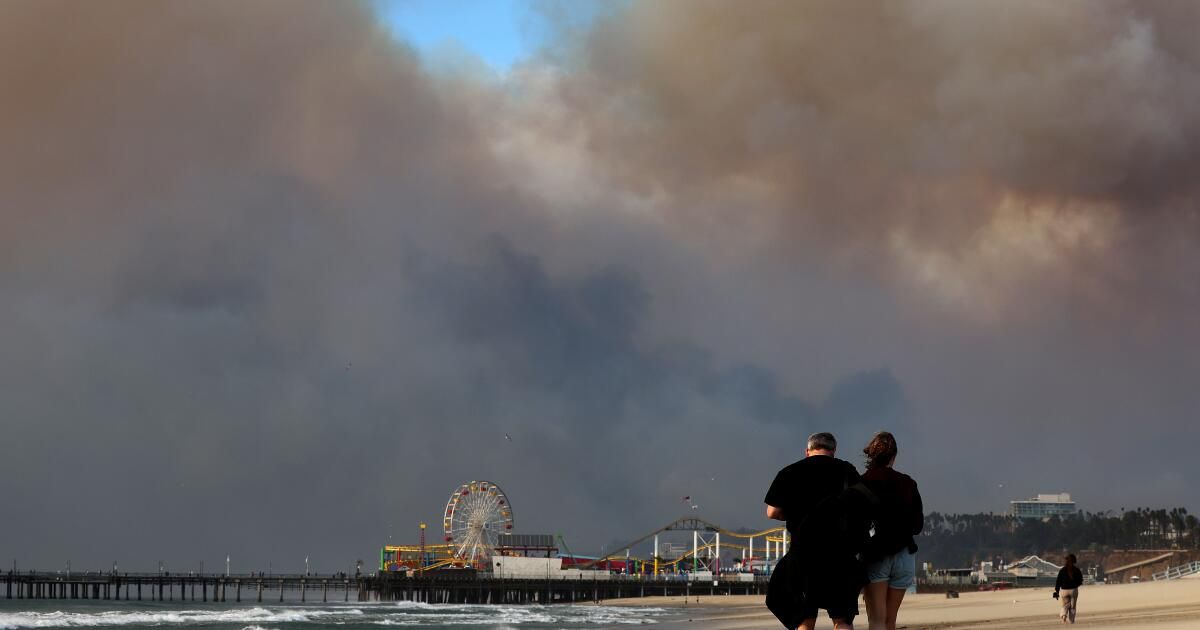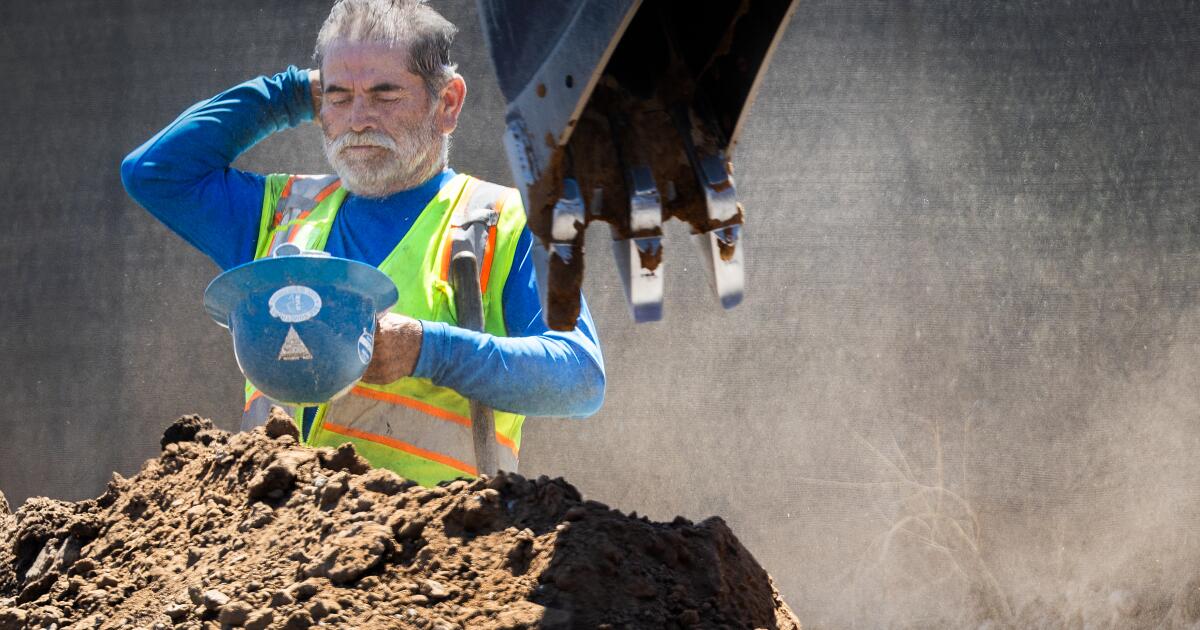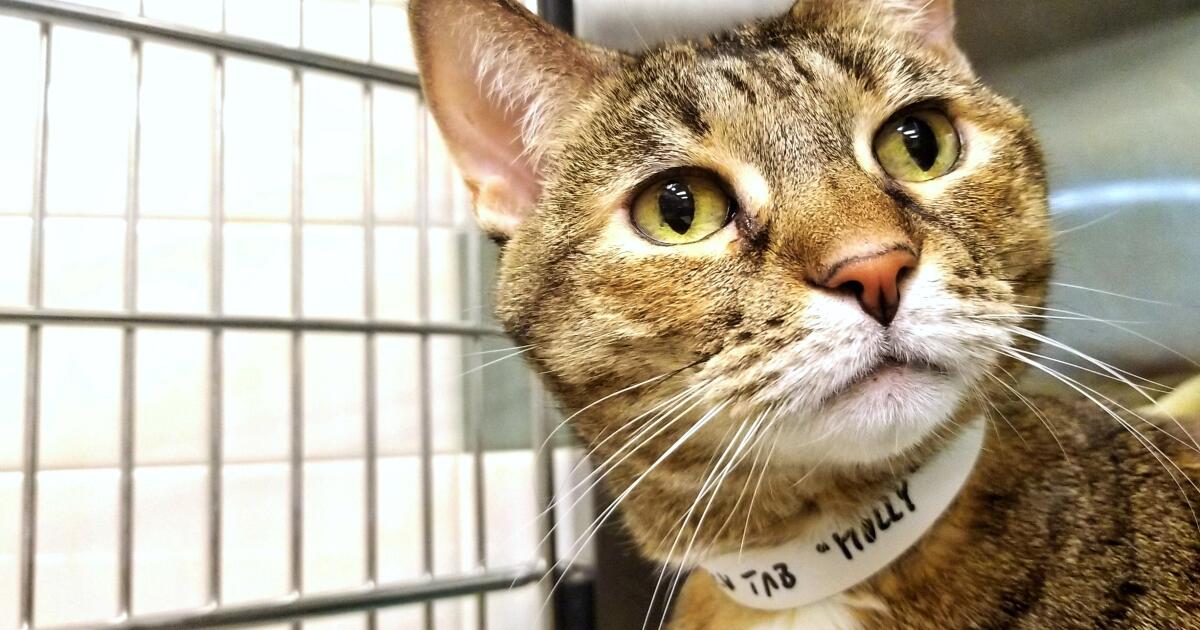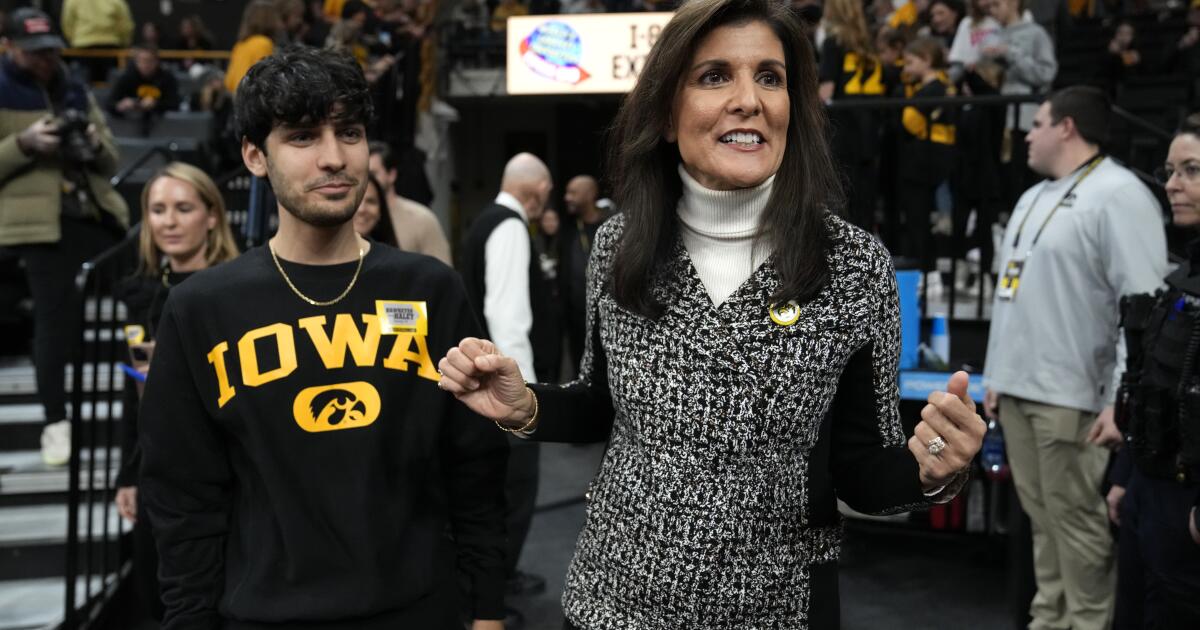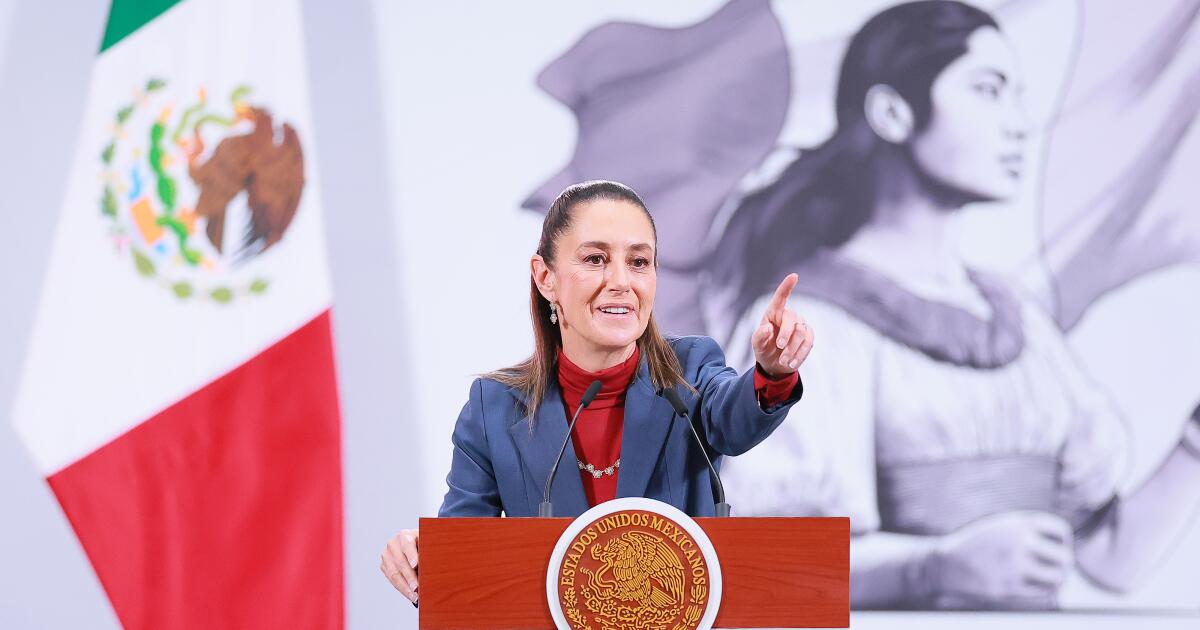My niece and I walked to the end of Venice Pier on Tuesday to watch the bright orange flames climbing the Santa Monica Mountains in Pacific Palisades. Clouds of smoke rose over the ocean as fierce winds pushed them out to sea and whipped sand into our faces.
On Thursday I drove to the Palisades with my friend Chris Coté, who owns a modest house near the bluffs overlooking the ocean. Their children grew up there; Now he rents it to a couple with three girls.
At checkpoints along Sunset Boulevard, police blocked access to the now-devastated community. Only accredited media, emergency vehicles and work trucks were allowed through. Chris and I made it through two police lines before a stern officer on Allenford Avenue refused to let Chris pass.
I left it next to Paul Revere Charter High School and continued along the curves of Sunset toward the Village, the commercial heart of Pacific Palisades. Some stretches of the iconic boulevard, as you have no doubt seen on the news, looked like the aftermath of a bombing.
Except for several official vehicles, the streets were practically empty. Downed utility lines and trees scattered across roads. Some residents noted damage here and there. Teenagers roamed the streets on minibikes.
What a stark contrast between the fire that devastated the city two days earlier and the tranquility it left in its wake. A fire is all dancing orange flames, flying embers, heat, smoke and terror. But the consequences are quiet and grim. Adrenaline gives way to overwhelming pain, loss and sadness.
The fire, driven by winds that reached 100 mph, was irrational and made senseless decisions about what to destroy and what to do without. Some buildings and houses seemed intact, as if protected by the wings of an angel. Others had simply evaporated into hell.
Much of the Palisades, once vibrant and green, is now monochromatic, like “The Wizard of Oz” in reverse. Brick chimneys rise from the rubble, one of the few signs that houses once lined the streets of this suburban paradise, now a hell.
From Sunset, I turned left onto Via De La Paz and passed businesses, some leveled and others, like a veterinary clinic built of waterproof bricks, still intact. I parked on North Beirut Avenue, a three-block street that ends at Via De Las Olas, the winding road that runs along the cliffs above the Pacific Coast Highway. Normally, from that position, the view of Santa Monica Bay is postcard perfect. However, that day, with the fires still surrounding the city, a fog hung over the landscape, obscuring everything.
When I got out of my car, the pungent, pungent smell hit me like a campfire in the face. Ashes swirled in the air like poisonous snowflakes. Wisps of smoke rose from piles of blackened rubble. Total devastation.
As I write Friday morning, the four major fires surrounding Los Angeles are still burning. At least 10 people have died, an estimated 10,000 structures have been destroyed and damage runs into the billions. The National Guard has been deployed to protect evacuated neighborhoods from looters.
Thousands of people, each with their own heartbreaking story, have been displaced. The schools are closed. My friend Jean De Longe, who teaches first graders at a Palisades school that burned down, told me that one of her students, whose family lost their home, was especially upset about losing his stuffed animals.
Trauma will stay with us for a long, long time.
This catastrophe will force a civic reckoning that has already begun. We no longer have fire season; We have fires all year round. You can call it climate change or you can pretend it's something else. No matter: Our world is hotter, weather patterns are more extreme, and none of that is good news for California, which swings between wet and dry years.
Extreme drought conditions, coupled with some of the fiercest Santa Ana winds we have ever seen, produced this devastation. The fire hydrants dried up; The firefighters were overwhelmed.
At that moment the political accusations began. Does it really matter that Mayor Karen Bass wasn't in Los Angeles the day the fire broke out? He was in constant communication with staff and firefighters, something that, you know, is completely common in our hyper-connected age. And will we ever understand that Bass did it? No Take money away from the Fire Department and their budget actually grew last year?
President-elect Donald Trump, never one to miss an opportunity to criticize his Democratic antagonist Gavin Newsom, has blamed the governor for not diverting enough water from Northern California to the South, a ridiculous misunderstanding of the state's water system.
The fireplace is all that remains of Chris Coté's home in Pacific Palisades.
(Robin Abcarian / Los Angeles Times)
Conservative cable news pundits have naturally blamed the fire on the city's diversity, equity and inclusion, or DEI, measures. But the Fire Department, with its high-paying jobs and extremely generous retirement benefits, has been under pressure to diversify its overwhelmingly male and white ranks. for decades. And rightly so.
For the first time in our history, the city's fire chief is a woman, and a gay woman at that, causing the MAGA hordes to be filled with nonsense. At this point, I've run out of adjectives for Elon Musk, who wrote on his X platform on Wednesday that “DEI means people DIE.”
Meanwhile, in Pacific Palisades, I finally found out which house belonged to my friend Chris. The only thing left standing was the fireplace and an iron porch railing.
As I drove back to Venice on Chatauqua Boulevard, I saw a young man walking toward the beach, holding a deflated soccer ball he had pulled from the ashes. I could only imagine what I had lost.
Blue sky: @rabcarian.bsky.social. Rags: @rabcarian

